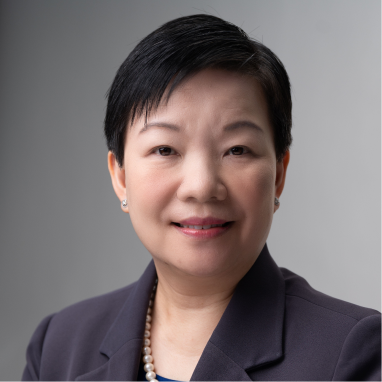THEME 4
Research and Development of Artificial Intelligence in Extraction and Identification of Spoken Language Biomarkers for Screening and Monitoring of Neurocognitive Disorders
T45-407/19-N
Coordinating Institution
- The Chinese University of Hong Kong
Participating Institution(s)
- The Hong Kong Polytechnic University
- The Hong Kong University of Science and Technology
Abstract
Population ageing is a global issue. The WHO projects that by 2050, 22% of the world's population will be aged 60 or older, with Hong Kong's population aged 65+ rising to 35%. Population ageing is associated with high-burden geriatric syndromes, increasing public healthcare costs and threatening societal sustainability due to a shrinking workforce and tax base. Neurocognitive disorders (NCD), including dementia, are especially prevalent among older adults, with care costs estimated at USD 1 trillion today, expected to double by 2030. Effective disease screening and management are crucial. Current NCD diagnoses rely on clinical professionals using neuropsychological tests, which are limited by clinician shortages, subjective assessments, and cultural biases. To address these issues, an automated, objective evaluation platform will be developed using inexpensive spoken language biomarkers for NCD screening and monitoring. This platform will enable remote monitoring, generating patient alerts for timely treatment. Collecting individualized data over time will help detect early cognitive decline, improving disease management and reducing care costs. Spoken language biomarkers will be targeted, as they are non-intrusive and can be easily captured remotely. AI-driven technologies will extract these biomarkers, providing sensitive cognitive assessments. This research aligns with WHO’s goals and aims to support patients and caregivers in Hong Kong through AI-enabled healthcare.
Research Impact
This project addresses the growing prevalence of neurocognitive disorders (NCDs) in an aging global population, with the 60+ demographic set to double by 2050. In Hong Kong, over 100,000 older adults may go undiagnosed due to long wait times and high care costs. We develop AI-driven spoken language analysis technologies for automated, non-intrusive NCD screening, offering cost-effective, scalable, and accessible cognitive assessments. With the CU-MARVEL corpus, the largest for NCD research in Hong Kong, we advanced deep learning for spoken language biomarkers. Integrating speaker diarization, speech recognition, and NLP, we created an AI-enabled screening pipeline with strong results in both English and Cantonese. Novel tasks like the Hong Kong Grocery Shopping Dialog and fMRI movie-watching have improved screening via memory and communication. Our screening apps are being piloted in the community. This work aligns with important initiatives such as Healthy China 2030 Blueprint, WHO’s Global Action Plan on Dementia, and the UN’s 2030 Agenda for Sustainable Development by enhancing healthcare access and reducing inequalities.

The Chinese University of Hong Kong
Professor Helen Meng is Patrick Huen Wing Ming Chair Professor of Systems Engineering and Engineering Management at The Chinese University of Hong Kong. She joined CUHK in 1998 and has served as Department Chairperson, as well as Associate Dean of Research for CUHK’s Faculty of Engineering. Professor Meng has been leading various joint partnerships, including with Microsoft Research Asia (MSRA), MIT, Tsinghua University and Dr. Stanley Ho Medical Development Foundation. Her collaboration with MSRA led to CUHK’s first engineering laboratory to achieve the national status of a Ministry of Education Key Laboratory. In 2019, her interdisciplinary team was awarded the first AI project under the HKSARG RGC Theme-based Research Scheme, which aims to develop AI technologies for screening dementia. In 2020, she led the establishment of CUHK’s InnoCentre on AI, named Centre for Perceptual and Interactive Intelligence, and serves as Director.
Since 2019, Helen has been serving as head of curriculum development of the CUHK-HKJC AI4Future Project, leading the creation of Hong Kong’s first pre-tertiary AI curriculum, with a focus on AI ethics. The AI4Future Project was recognized with the Gold Award of the Hong Kong ICT Awards Smart People Award 2021. The curriculum will be taught in all local secondary schools starting in 2024. Helen and her team have won many other awards, including the Gold and Silver medals of 49th International Exhibition of Inventions Geneva 2024, 2023 and 2024 INTERSPEECH Best Student Paper Award, the US National Academy of Medicine’s Healthy Longevity Global Grand Challenge 2024, the First Prize of the international DialDoc@ACL 2022 Challenge, Hong Kong’s SciTech Challenge 2021 Open Category Championship, 2019 IEEE SPS Leo Beranek Meritorious Service Award for service and leadership, etc. Helen has also served as the elected Editor-in-Chief of the IEEE Transactions on Audio, Speech and Language Processing, a top journal in her field. Helen is a Fellow of the IEEE, ISCA, HKIE and HKCS.